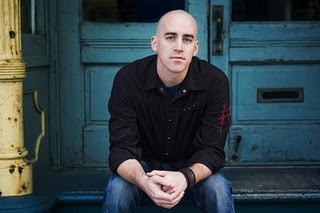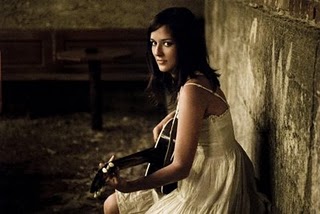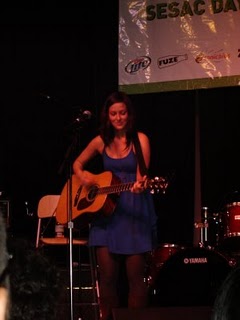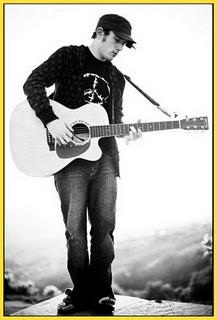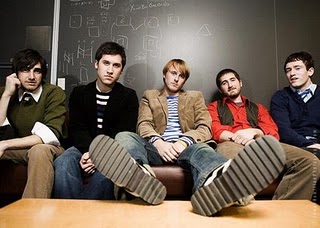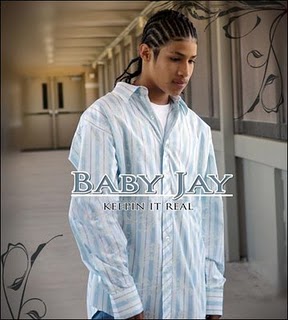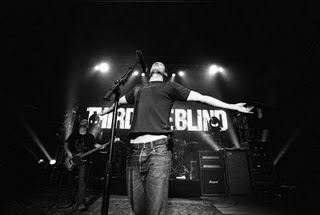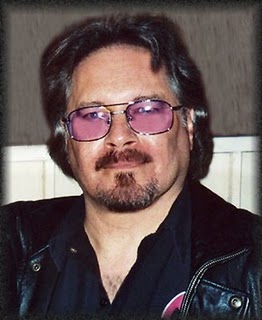 An active member in the music industry for over 20 years as a journalist, A&R; reporter, creative consultant and instructor, Bernard Baur has watched the growth and demise of many bands. Whether it was working with Guns N’ Roses or appearing in documentaries, he has seen enough to know what works for bands and what doesn’t.
An active member in the music industry for over 20 years as a journalist, A&R; reporter, creative consultant and instructor, Bernard Baur has watched the growth and demise of many bands. Whether it was working with Guns N’ Roses or appearing in documentaries, he has seen enough to know what works for bands and what doesn’t.
Baur was nice enough to talk at great lengths to me about his love of music and how he has made a career out of it. “Music has always affected me in a very strong way. I just found a way to make money with what I’m passionate about.” Read below for my interview with Baur as he discusses the constantly changing industry, innovative ideas that have created success for some musicians as well as his advice for up-and-coming bands and those looking for a career in the music business.
You’re a man of many hats; you’re involved in A&R;, a writer, photographer, and consultant for bands as well as teach music business. How did you get involved in each position and how do you manage to balance everything?
The best way to really learn how to do something and be effective in it is to try to do and get involved with as many aspects as you can. So, I tried to get myself involved with as many areas in the music industry as possible and I’ve been fortunate enough to do that. Once you start in one area, if you manage to get a good and solid reputation in that you do get other opportunities. That’s one thing about the entertainment business in general and music in specific, is that once you are somewhat known other people want to work with you on different things and so you start going into different areas. And one thing I’ve always done in my career is I rarely say no when someone asks me to do something and that just led me to one thing after another.
You’ve been in the industry over 20 years. How do you feel it’s changed since when you started?
Years ago, it used to be that the only way an artist was going to be successful was to be signed to a deal on a label. They needed a label to market them, develop them and get them out there. Nowadays that’s not so anymore. In fact, the independent area of both independent artists, artist run labels and indie labels, have come on very strong and in the last few years that trend has really taken hold in the market place. So, being signed to a label is not necessarily required or even an advisable goal for some acts.
Secondly, the other thing involved and this one may not be as positive, is that it used to be simply about the music and musical skills. If you had great songs and really strong musicianship you could probably do very well. But that’s not enough anymore. If just having great songs and being a great player were enough, all we would hear would be great music and that’s not so. There are other factors that come into play. Nowadays artists and managers both have to be pretty business savvy in order to accomplish anything.
Is it necessary for bands to hire publicists? What can they do for themselves?
You should only hire a publicist when you have something to publicize. In fact, I advise artists to work backwards, to first figure out what it is they want to accomplish with that publicity. There is a first phase and that is just simply establishing name recognition. That’s getting your name out there as much as possible so when people hear the name they go, “Oh yeah, I’ve heard of that or I saw that somewhere.” But that doesn’t really result in much other than name recognition. Most of the time artists can do that themselves by asking for reviews. Reviews of albums, reviews of live shows. There are a lot of people you can approach in that regard.
If they’re looking to hire a publicist where they are actually going to spend money they need to know what they hope to achieve. Also, a lot of times starting out you may not know who you are as an artist or as a band, what your identity is, what your image is. By image I mean things that are much more than visual. Image encompasses everything you do, from your visual appearance to your music, to your message, to your package — it’s everything. It’s helpful if you have identified that and the publicist doesn’t have to do that for you. So before a band hires a publicist I think they should have developed themselves to a point where the publicist has something to work with and a goal to shoot for.
What do you look for in an up-and-coming band as an A&R; person?
Everybody in this industry has a wish list, some are longer than others. In fact, most people that I know who are in A&R; or in management, have a list that’s anywhere from three to six points long.
If you’re talking about major labels they want pretty much all of it. They want a complete package, they don’t want any weaknesses in any areas, they want an accomplished, already developed act because they don’t do much development. If you’re looking at indies, they will take an act a little bit earlier. But even at indies, not so much. They want acts that are somewhat developed, have accomplished at least a couple of things. At an indie, the biggest difference is that they’ll give the act more time to be successful. At a major you have very little time to be successful.
As far as me and acts I work with, it depends on a couple things. I will take on what a lot of people call baby bands just starting out if I think there is potential that they could achieve something. I’m not talking about giant success and making millions of dollars and being all over MTV, although that would be wonderful. As long as I think they can achieve something and I can help them do that, I will take them on. The acts I really like and get excited about are ones that I hear great songs, I know that I can tweak their live performance if it needs any help and they have the right attitude. Attitude with an artist is very important because artists can no longer rely on one person or couple people to do everything for them. In fact, artists should not expect anyone to make them, break them or shape them. They are going to have to contribute themselves to that result. It’s important that the artist have the right attitude, the right work ethic and also have the talent and the material to back them up.
I was reading your blog and on one of your posts you said:
“The most successful acts work on their careers EVERY SINGLE DAY. They’ll come home, after hours of menial labor, and spend 2 to 4 hours on their computer, contacting people, updating their websites, and generally taking care of business. No matter what… Are you willing to do that? Are you willing to do whatever it takes? If so, you’ll get a jump on 90% of the wannabes.”
For some artists that’s very difficult to do and some artists don’t like to get involved with that. But they certainly have to have somebody involved with it. Also, it is important that artists have communication and contact with their fans or potential fans. Fans don’t want to talk to me, they don’t want to talk to management, they want to talk to the artist. Artists have to take some time to do that and if they’re not willing to do that, they shouldn’t complain about what lack of results they’re get
ting. It is important that everyone
work together and they be a team. In fact, I just did an article speaking with people at labels, both indie and major, and across board they expect everyone to work like a team. They don’t want acts or management that expect them, at a label, to do it all for them anymore, it’s just too much.
The plus is that artists and independent acts have been empowered. They have a lot more tools available to them, a lot more options they can take in order to achieve success. The downside is that the empowerment requires responsibility. They’re actually going to have to do something. They’re going to have to exert time, effort and money into their career. One person can’t do it all anymore. If you were to try to upload your music to every music site on the Internet, you would be uploading music until the day you die. One person can’t do that and you have to decide what’s important for you. Who’s going to take care of MySpace and all the friends on there, who is going to deal with the email, who is going to promote the shows properly? There is so much to do now that it’s impossible for any one person or even a couple people to do it alone. I have coined a new term. Because there used to be a movement, called DIY, Do It Yourself. I now call it DIT – Do It Together because I don’t think one person can do it themselves anymore.
Do you feel it’s easier for bands to breakout today?
Today there are very few rules. In fact, we all know a lot of the old rules don’t apply anymore; they don’t get the results they used to. You can practically make up your own rules. I encourage my students at the Musicians Institute to be as creative and innovative as possible. It’s the people who are going to think of a new way to do things that are going to get attention.
I would really recommend any artist [to] be as creative in their promotions and marketing as they are with their music. Don’t just follow the same old template. If you can think of something unique and new and exciting, you might get the attention and actually break out. Some of the bands I’ve seen break out have had opportunities presented to them because they created those opportunities. They’ve done something unique and different that stands out enough and sets them apart from everything else.
Is there an act that has stood out to you over the years with their creativity?
Radiohead comes to mind immediately. Not because of their music, but their approach to what they did less than a year ago — offering an album to their fans and their fans could pay anything they wanted, including nothing. That’s one of those innovative creative things.
Trent Reznor and Lil Wayne especially, who offered tracks to their fans to remix on their own. Lil Wayne was particularly interesting in that he offered, over a process of one year, almost 77 songs online for free before he ever put out an album. When he finally put out an album, his fans rewarded him for that. They were so devoted and loyal by that time that he had the biggest and fastest selling album of last year. But before he had that biggest and fastest selling album, he had given fans 77 songs for free. That’s the sort of thing that impresses me. These are acts that are thinking outside of the box. When you treat your fans right they will respond and reward you for it.
What advice would you give to writers, label executives and people wanting to work in the music industry when everyone says the music industry is dead?
For anyone wanting to get into it, there are various ways you could do it. Before I get into that, I want to tell you about an interesting observation we discovered at the Musicians Institute.
The Musicians Institute is two different schools. One is a creative school that deals with musicianship and vocals and engineering and all of that stuff. The other one is the school that I am part of, and that is the music business program. We discovered that almost 30-40% of students that graduate from the creative part of the school then take the music business program. They have the skills, now they want to learn how to make a living with those skills. So you have to know business to a certain extent.
Anyone who wants to break in has to decide if they’re breaking in on the creative side or if they’re breaking in on the business side or if they want to know about both sides. The way you do that is you acquire some knowledge initially. However you’re going to do that — reading a book, going to school, whatever you need to do. Going to conferences, workshops. Then you start networking and meeting people and seeing if you can work under someone who may be more experienced. Get yourself a mentor if possible. Or, you could just jump in and try to be a manager and learn by trial and error. A lot of people start out that way, managing up-and-coming acts that are local and are brand new. What you have is to actually do it and get out there. Networking is so very important. This whole business is about relationships. You have to deal with other people, no one does it alone. It’s a very collaborative business, there are always other people involved in success so it’s important that you nurture and establish as many relationships as you can.
Is there any more advice you have?
I just wrote a large article about the music business today and where it’s going and if it’s turning the corner. I think there are a lot of opportunities right now. I think artists should certainly look at them seriously. I do believe that artists should set up their own labels. Once you have music and you are playing a show and you’re trying to promote yourself and sell something, you’re already doing what a label does. So, don’t be afraid to call yourself a label and give yourself a label name.
Additionally, it has a benefit because in this business perception means a lot. If somebody thinks you’re on a label, even if it’s just you on a label, they will treat you in a more professional manner. What artists have to get over is the fact that they may be the only act on the label; it’s still the real deal if they want to have a career. There is nothing wrong; I have no problems with artists who are just doing it for fun. I think for the love of the music is the purest reason to do it in the world. But we’re in LA, and in LA almost every artist wants some sort of a career, some sort of success.
I see a lot of acts and talk to a lot of artists and 99% of them have a very simple wish, which is to make a living with their music so they don’t have to have another sucky job. That, today is very possible. Artists need to look at that. The ones that want to be superstars and on MTV and an international success, yeah they’ll probably have to hook up with a bigger company because that’s very difficult to do on your own. But if what they’re simply looking for is to play their music, do something they love, and make a living doing it, today is the best time for doing that. They couldn’t have done that in the past, but today you can do that.
For more on Bernard Baur, be sure to check out The Composers Corner and Music Connection and read his articles. You can also follow his blog here.
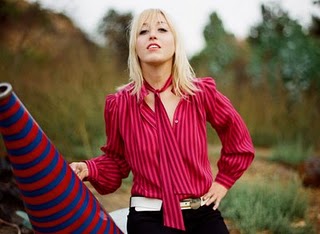 Sassy and comical singer-songwriter Anya Marina chatted with me right before her acoustic afternoon performance at Cedar Street in Austin, Texas. With a cup of tea in hand and a pre-show meal of goat yogurt and a bag of mixed nuts, Marina spoke candidly about being told she’d never make a career singing, recording shirtless and having a breaking feature in Rolling Stone: “I was so shocked when I heard. I just got an email one day that said, ‘Rolling Stone wants to do a breaking feature.’ In the words of Rachel Zoe, I died.”
Sassy and comical singer-songwriter Anya Marina chatted with me right before her acoustic afternoon performance at Cedar Street in Austin, Texas. With a cup of tea in hand and a pre-show meal of goat yogurt and a bag of mixed nuts, Marina spoke candidly about being told she’d never make a career singing, recording shirtless and having a breaking feature in Rolling Stone: “I was so shocked when I heard. I just got an email one day that said, ‘Rolling Stone wants to do a breaking feature.’ In the words of Rachel Zoe, I died.”
